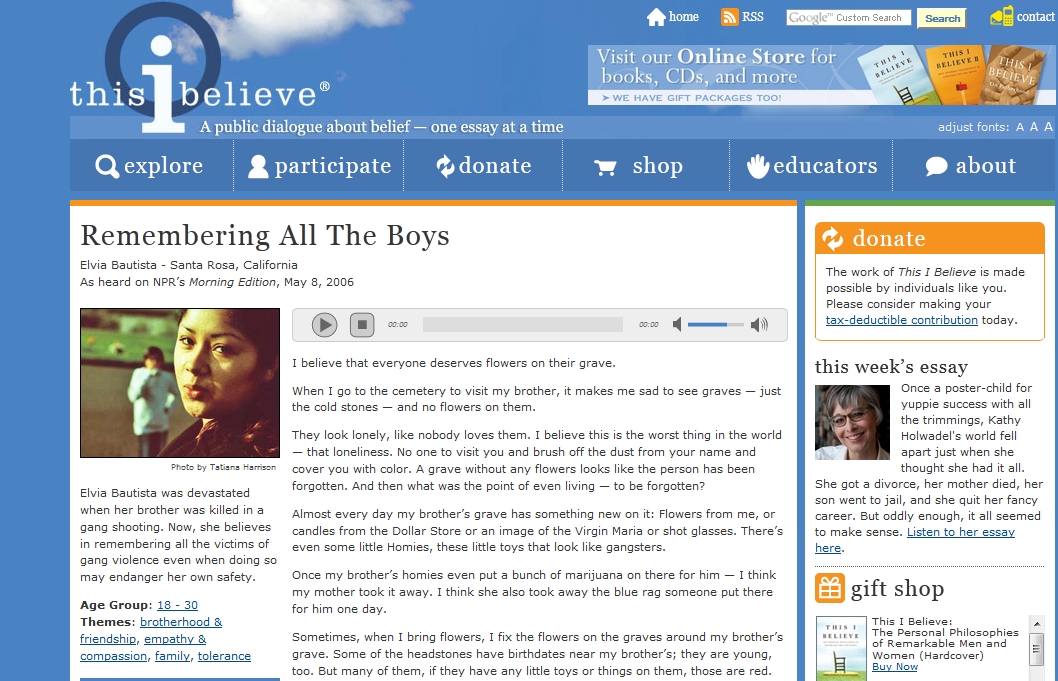 | Elvia Bautista |
| Remembering All the Boys |
Originally a national radio program hosted by Edward R. Murrow in the 1950s, This I Believe stated as its mission “to contribute to the improvement of society by enabling people to think about, express, and share their deepest beliefs.” Since its resurrection in 2004, the organization continues this mission by collecting international audio essays by men, women, and children from all walks of life in an attempt to inform the public about the diversity of values and beliefs that shape the lives of human beings all over the planet. Executive producer Dan Gediman says, “The goal is not to persuade Americans to agree on the same beliefs. Rather, the hope is to encourage people to begin the much more difficult task of developing respect for beliefs different from their own.”
Elvia Bautista lives in Santa Rosa, California, where she works as a caregiver for the elderly and individuals with disabilities. Bautista stayed after her brother’s murder even though the rest of her family moved away. A high school drop-out, Bautista now speaks to young people about the dangers of gang life.
(Click on the screenshot below to play the audio essay.)

Source: thisibelieve.org/essay/21255/
| Starting a Conversation: Respond to “Remembering All the Boys” | |
 | In the text boxes below, analyze Bautista’s purposes and composition strategies by responding to the following questions: |
Question
Describe Bautista’s position as a speaker in this writing situation. How do her reflections establish her own authority and beliefs?
Question
After you’ve listened to the audio essay, describe how Bautista’s voice affects the essay’s writing situation. For example, how does it contribute to Bautista’s credibility? How does it serve the essay’s purpose?
Question
Although Bautista’s audio essay records and reflects on her own experience, these reflections may also suggest other writing purposes, too. Do you see any argument in Bautista’s reflection? How effective are her reflections as support for this argument?
Question
Describe who the audience might be for Bautista’s essay and explore what their expectations might be as they first hear it. What are the main differences between Bautista’s own community and the audience for her audio essay? How does Bautista’s essay speak to both audiences?
Question
Although reflective writing is often personal in nature, it can illuminate broader issues that extend far beyond the writer’s own experience or community. What does Bautista’s essay add to the larger conversation about gang violence? How does she turn a reflection on a personal tragedy into insightful commentary on a complex issue?